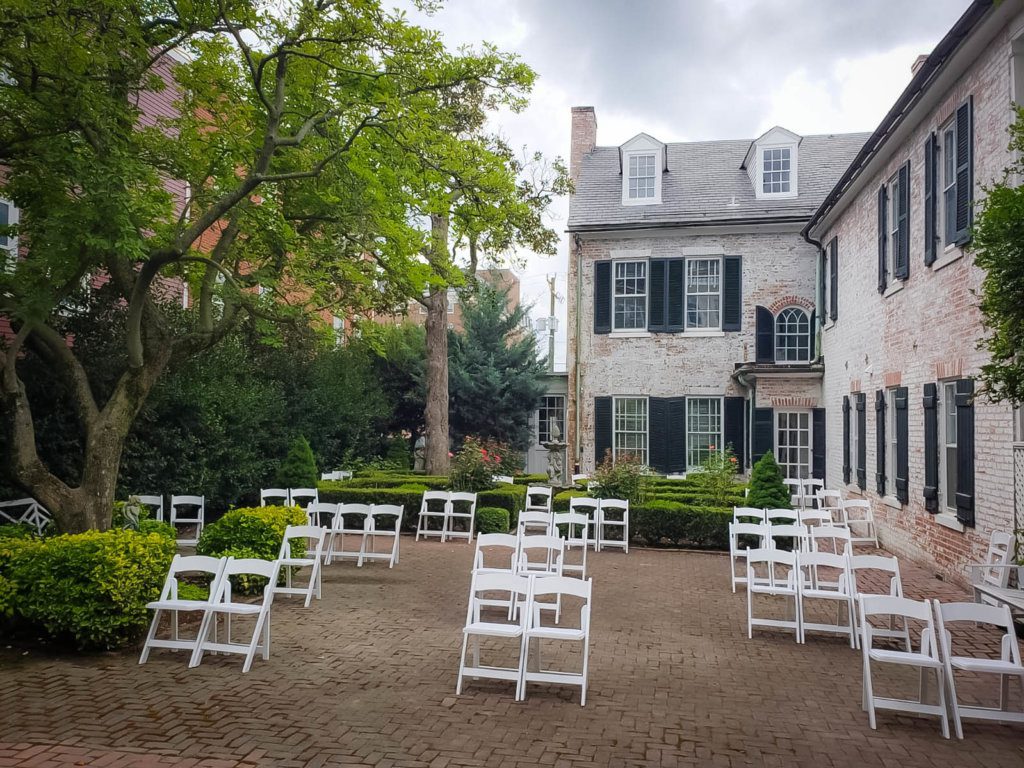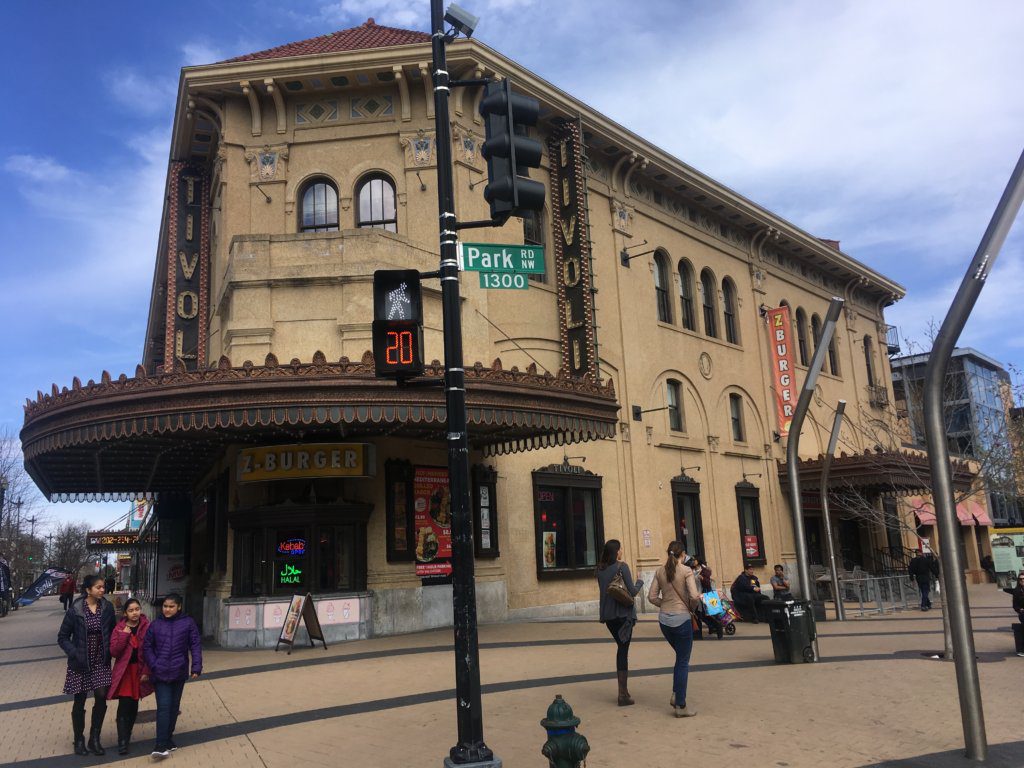Pandemic Forces Performing Arts Leaders to Rethink
By • September 15, 2020 0 2415

About six months into the pandemic, East Coast museums are coming back to life — though, as of this writing, the Phillips Collection and nearly all the Smithsonian museums remain closed.
Not so with performing arts organizations. To adhere to health and safety guidelines, they would have to drastically reduce capacity, essentially committing financial suicide.
Broadway shows have been canceled through Jan. 3, and an extension through the spring seems likely. Anthony Fauci, director of the National Institute of Allergy and Infectious Diseases (as if you didn’t know), looked on the not-very-bright side in a New York Times article last weekend: “In states, cities or counties in the green zone with low levels of infection, I imagine theaters could maybe open at 25 percent capacity, with people wearing masks, sometime as early as next year.” He wasn’t talking about the Big Apple.
Though some D.C.-area theaters had hoped to open their seasons this fall, the only one still saying so is GALA Hispanic Theatre, which will present the Lope de Vega comedy “El perro de hortelano (The Dog in the Manger)” in Spanish with English surtitles from Oct. 29 to Nov. 22.

The restored 1924 Tivoli in Columbia Heights is the home of GALA Hispanic Theatre. Photo by Richard Selden.
Taking advantage of its exurban location in Staunton, Virginia, the American Shakespeare Center has been presenting “Twelfth Night” and “Othello” outdoors on the lawn of the Blackburn Inn and indoors in its Blackfriars Playhouse. Opera Lafayette will go even farther afield, mounting Françoise-André Danican Philidor’s 1761 work, “Le Maréchal ferrant (The Blacksmith),” on October 9, 10 and 11 at a ranch outside Mancos, Colorado.
Rather than announce and cancel, announce and cancel, in May, D.C.’s innovative opera company In Series declared itself “the first company in the world to articulate its intention to present a completely digital season” in 2020-21. The Season Liftoff Concert will take place online on Sept. 17 via Invision: The Logan Operahouse Without Walls. A cartoon ghost dressed as an usher guides website visitors to subscription options. “Pleiades/24” opens on Sept. 18 and “A Fairy Queen” on Sept. 19.
Strathmore, Wolf Trap and the Kennedy Center — where the National Symphony Orchestra and Washington National Opera seasons will start in January — have canceled or postponed all major in-person performances through the end of 2020. These closures have had a devastating ripple effect on other performing arts organizations, including the Washington Ballet, which postponed its production of “Swan Lake” to May of 2021 and will offer “The Nutcracker Virtual Experience” this December.
High-profile music presenter Washington Performing Arts announced Home Delivery Plus, a season of “multi-faceted virtual packages” beginning in early 2021. Referring to the online enrichment components of the live and newly recorded events, President and CEO Jenny Bilfield said the organization is “focusing on building the depth of experience and range of touchpoints that we offer.” The in-person option is still on the table, should venues reopen.
In July, hearts and happy faces floated up as the Choral Arts Society of Washington streamed a pep rally-like “Journey to Awe” on Facebook Live. Choral Arts is now selling virtual season subscriptions, with the first event, “Día de los Muertos: Featuring Brahms’s Requiem,” co-presented with the New Orchestra of Washington, in October. The Cathedral Choral Society’s virtual season, called CCS Presents, will stream concerts, clips and interviews on its YouTube channel and Facebook page, with new content on the first Thursday of every month.
While virtual programming has blossomed, there have been few attempts to return to live, in-person performance. Alexandria, Virginia, appears to be the area leader, with outdoor, small-ensemble performances by Alexandria Symphony Orchestra members planned for this fall and the 18-concert Sounds of Hope & Harmony series successfully launched in the Rectory’s secret garden by orchestra tour company Classical Movements.
The Georgetowner asked several leading figures in D.C. theater to suggest some silver linings of the pandemic, even as it has stolen the livelihood of countless musicians, actors, dancers and other arts workers and threatened the very future of many performing arts organizations.
Studio Theatre has not yet released its season plans, but Artistic Director David Muse said: “I don’t mind sharing that I’m excited by how much unexplored territory there is for Studio … like virtual/in-person hybrids, audio work, installation-based theater, all of which is new to us.” Likewise for Simon Godwin, Shakespeare Theatre Company artistic director, who commented: “For the upcoming 2020-21 season … we plan to celebrate the universality of Shakespeare by embracing radical strategies that marry contemporary technology and classical plays.”
“We are pioneering online, and the creativity has been explosive,” said Arena Stage Artistic Director Molly Smith, who has hosted a virtual series of panels called Molly’s Salon. Arena has also offered online master classes on playwriting, costume design and other topics. “It’s a new kind of work that will continue even after we are back onstage,” she added.
Godwin, who called technology “the saving grace for so many theaters during this time,” said it had “allowed us to bring in artists, actors and scholars from across the U.S. and U.K., and I’ve been able to engage in a dialogue with more than 500 members of our audience each week” at STC’s Shakespeare Hour LIVE! series.
For Muse, “It’s a challenge to name upsides,” but in addition to technology-related capacity building and access widening, he noted that “we’ll have time to focus on shoring up aspects of the institution that can get less attention than they deserve in normal years. And we’ll hopefully have some time to slow down a bit, which is probably a better place from which to make art.”
“Even though it’s scary,” said Smith, “there is opportunity in the ultimate challenge to find new ways to create our art form. And I’m absolutely sure there will be a lot of great art that comes out of this shared experience of imagining a new world.”
Of course, the pandemic has coincided with an intensified and sustained focus on inequality and racial justice.
Pointing out that “Ford’s Theatre was forged in one of this country’s most divisive eras, the Civil War,” Director Paul Tetreault said: “We have used this time to consider how we might elevate marginalized voices and lesser-known histories through productions that speak to courage, justice, determination and hope. You’ll see that reflected in the stories we offer in 2021, and through our new commissioning initiative, the Lincoln Legacy Commissions,” for BIPOC (Black, Indigenous and People of Color) playwrights. “We’ve had the time to listen to staff and our artists so that we can build a more equitable future together, and to seek out creative work that can inspire and provide healing.”
“This is a clarion call for all of us,” remarked Maria Manuela Goyanes, artistic director of Woolly Mammoth Theatre Company. “With the impacts of COVID-19 and our country’s uprising against anti-Blackness and racism, it is clear that there is no going back to what was before. Although we don’t know what the future holds, this moment required the theater to become an essential space for grappling with the tremendous complexity of what it means to be human.”
Goyanes also offered a specific example of a pandemic-related innovation: the Golden Ticket. She explained: “This Wonka-inspired all-access pass is Woolly’s answer to subscriptions in the age of corona: a ticket that grants unlimited admission to any show, in any seat, as many times as you want. You pick your date and your seat whenever you feel comfortable attending.”

